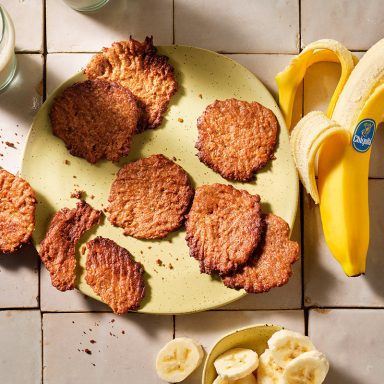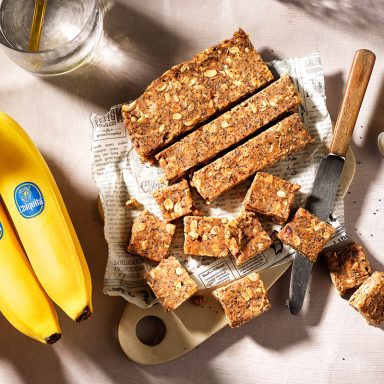Banana bread ingredients
On this Wikipedia the language links are at the top of the page across from the article title. A banana is the common name for a type banana bread ingredients fruit and also the name for the herbaceous plants that grow it. These plants belong to the genus Musa. It is thought that bananas were grown for food for the first time in Papua New Guinea.
Today, they are cultivated in tropical regions around the world. There are about 110 different species of banana. In popular culture and commerce, “banana” usually refers to the soft and sweet kind, also known as dessert bananas. Other kinds, or cultivars, of banana have a firmer, starchier fruit. Other than being used as food, beer can be made by fermenting the juice of certain cultivars in Africa, known as beer bananas. The banana plant is the largest herbaceous flowering plant. Banana plants are often mistaken for trees.
This pseudostem can grow to be two to eight meters tall. Banana leaves grow in a spiral and may grow 2. They are easily torn by the wind, which results in a familiar, frayed look. The banana fruits grow from a banana blossom in hanging clusters, also called a bunch or banana stem. The fruits grow in rows called tiers or hands. There can be as many as twenty fruits to a hand, and as many as twenty tiers in a bunch. There is a fleshy part inside that readily spilts into three segments.

It is the only known tri-segmented fruit in the world. Both the skin and inner part can be eaten. Bananas have a lot of vitamin B6, vitamin C, and potassium. Bananas are grown in at least 107 countries. The countries that produce the most bananas include India, Brazil, China, Ecuador and the Philippines.
Some people are allergic to bananas. There are two basic forms of these allergies. The first is known as oral allergy syndrome. Within an hour of eating a banana, swelling starts inside the mouth or throat.

The fibre gained from the banana plant has been used to make textiles for a long time. In Japan, bananas have been grown to be used for clothing and in the house since at least the 13th century. Another system is used in Nepal. There the trunk of the banana plant is harvested instead.
Small pieces of this trunk are then softened. The fibres are extracted mechanically, bleached, and dried. Banana fiber is also used to make banana paper. There are two different kinds of banana paper: paper made from the bark, and paper made from the fibre and from unused fruits. Fruits of wild-type bananas have many large, hard seeds.